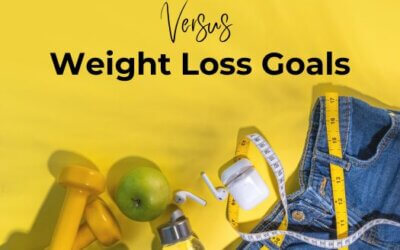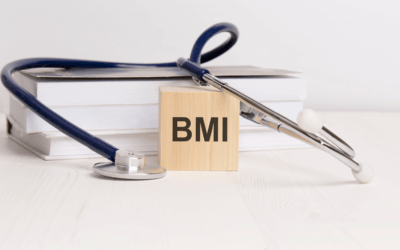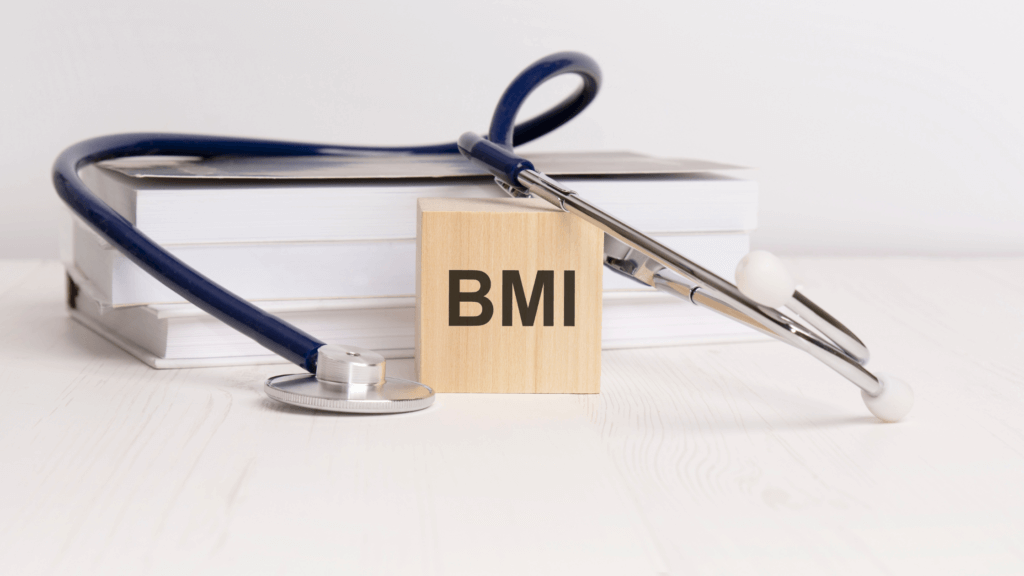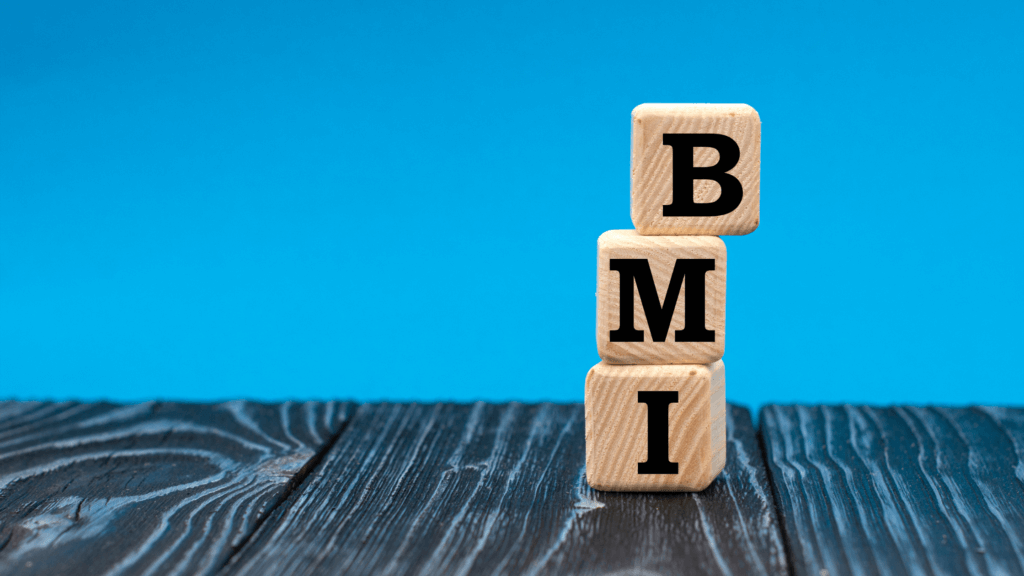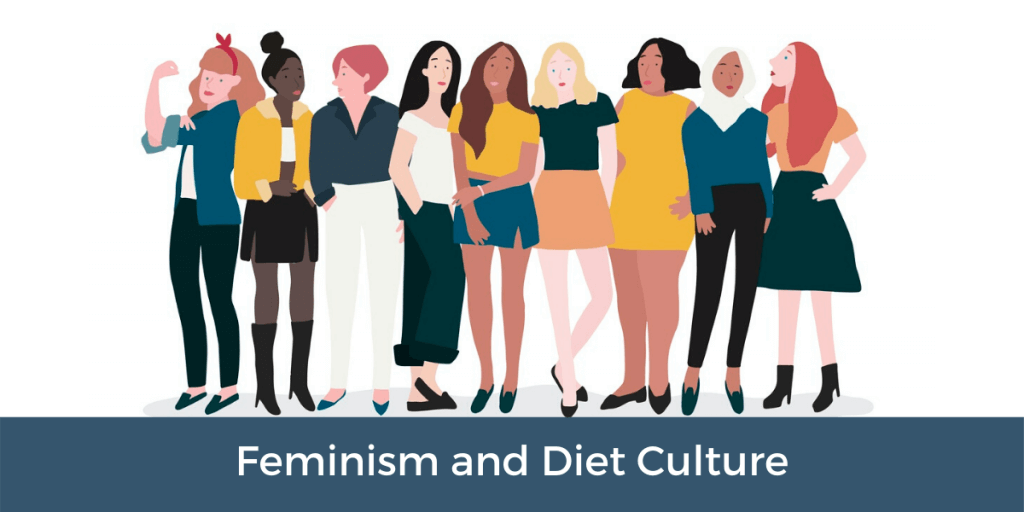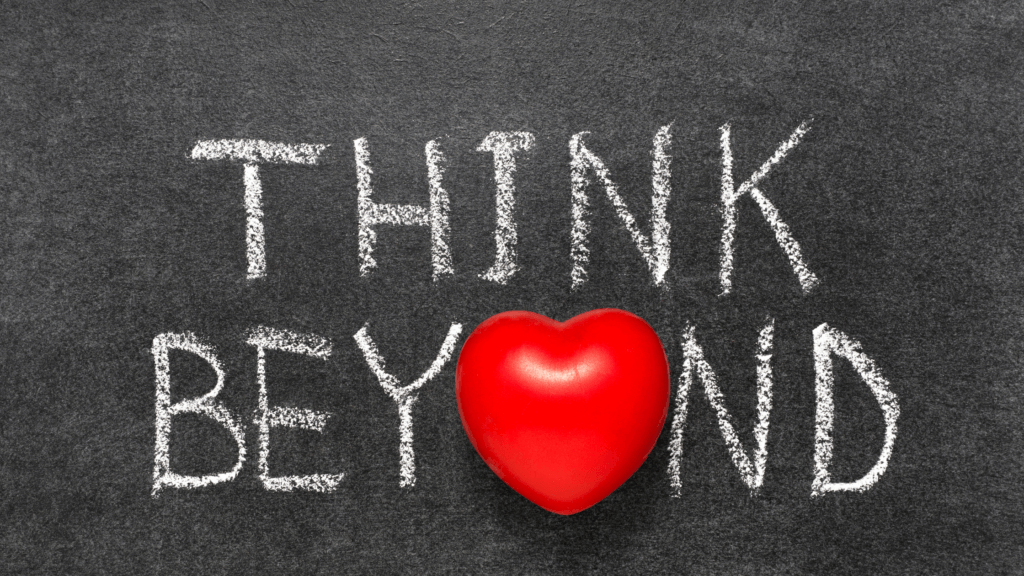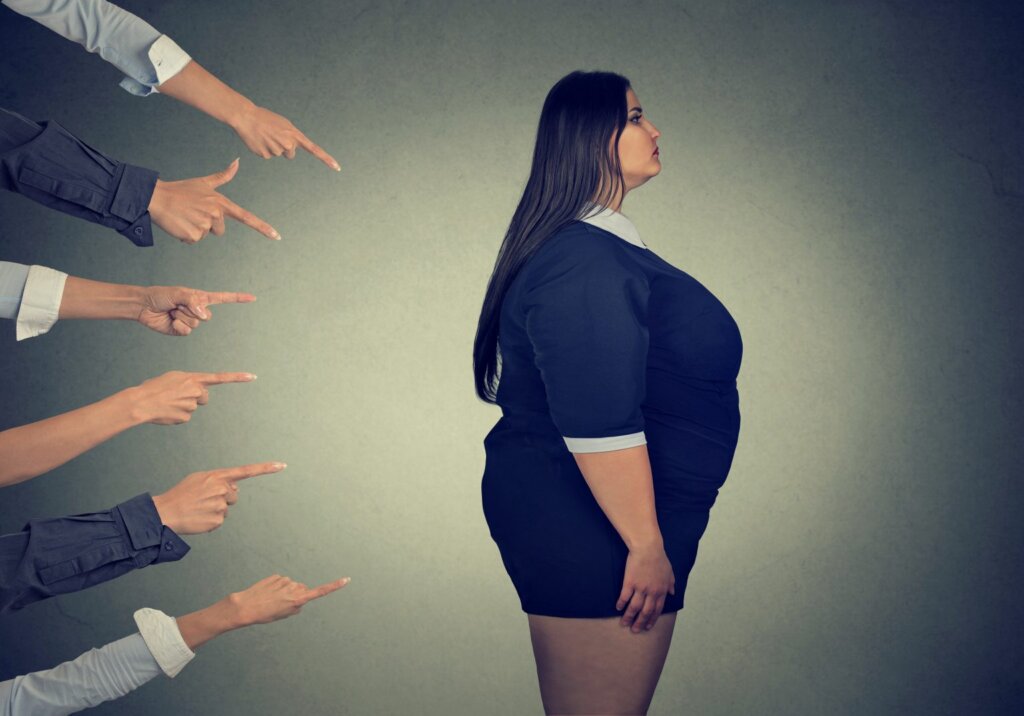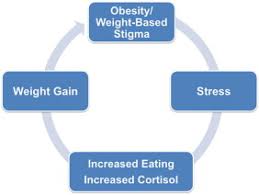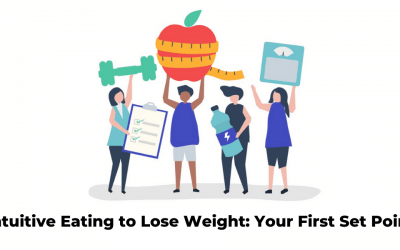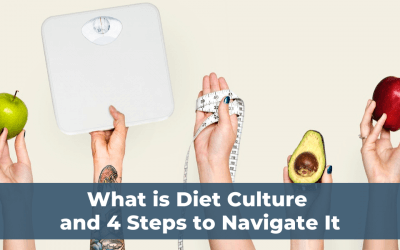Health Blogs
How to Say NO to New Year New You and What to Do Instead to Feel Better

As the year comes to a close, the “New Year, New You” messaging emerges like clockwork, urging us to start over, fix ourselves, and chase unattainable ideals. But what if this year, instead of buying into diet culture’s manipulative narrative, we approached the New Year differently? Ready to learn how to say NO to new year new you narrative?
This guide will help you understand the roots of New Year’s resolutions, how diet culture has distorted them, and how to set empowering goals that support your well-being—without the baggage of dieting or body shame.
The History of New Year’s Resolutions
Setting intentions for the new year is an ancient practice. Four thousand years ago, early civilizations made promises to their gods, offering sacrifices in exchange for a fruitful year ahead. Organized religions later adopted similar traditions, with followers vowing to correct past mistakes and strive for better adherence to religious principles.
In today’s secular world, the “gods” have changed. Diet culture and the thin ideal have replaced spiritual guidance, convincing us that a smaller body is the key to happiness, success, and health. Instead of reflecting on meaningful growth, we’ve been conditioned to focus on shrinking ourselves as the ultimate resolution.
How to Say NO to New Year New You: How Diet Culture Hijacked the New Year
Diet culture preys on insecurities, turning the New Year into a season of self-criticism. It equates worth with physical appearance and health with thinness, pushing the narrative that “fixing” our bodies will fix our lives.
Think about the ads flooding your feed:
- Detoxes to “cleanse” the indulgences of the holiday season.
- Gym promotions promising a “new you.”
- Before-and-after photos celebrating dramatic weight loss.
These messages imply that who you are right now isn’t enough. They frame the New Year as a deadline for transformation, rather than an opportunity for authentic growth.
Rather listen to the audio version of this blog? We’ve got you…
Why We Keep Falling for It
Despite knowing diets don’t work long-term, many of us still set weight loss resolutions. Why? Because diet culture convinces us that failure is personal—not systemic.
When a diet fails, we’re told it’s due to a lack of willpower, not because the diet itself was unsustainable. This endless cycle of blame and guilt keeps us hooked, hoping that the next plan will finally work.
Breaking Free: How to Say NO to New Year New You
Rejecting the New Year, New You narrative isn’t about giving up on self-improvement—it’s about redefining what improvement looks like. Here’s how:
1. Understand What You’re Really Chasing
When you set a weight loss goal, what are you truly seeking? Confidence? Happiness? Better health?
Reframe It: Instead of focusing on a smaller body, focus on how you want to feel. For example, aim for more energy, better sleep, or less stress—none of which require dieting.
2. Separate Health from Weight
Health and weight are not the same. Research shows that behaviors like balanced nutrition, regular movement, and stress management have a greater impact on health than body size.
Reframe It: Set health goals that prioritize behaviors, not outcomes. For example:
- “I’ll add more vegetables to my meals” instead of “I’ll lose 10 pounds.”
- “I’ll take walks for mental clarity” instead of “I’ll burn calories.”
3. Question the “Fix Yourself” Mentality
Diet culture thrives on making you feel broken. But you’re not.
Reframe It: Shift your focus from fixing to creating. What can you build in your life that aligns with your values and brings joy?
4. Ditch All-or-Nothing Thinking
New Year’s resolutions often set us up for failure with extreme, unsustainable goals.
Reframe It: Embrace flexibility. Allow room for adjustments and celebrate small victories along the way.
5. Surround Yourself with Support
Who you follow and engage with shapes your mindset.
Reframe It: Curate your social media to include accounts that celebrate body diversity and reject diet culture. Connect with communities that support intuitive eating and self-compassion.
6. Celebrate Non-Scale Victories
Your worth isn’t defined by a number on the scale.
Reframe It: Recognize achievements that reflect personal growth, like improved energy, stronger relationships, or newfound hobbies.
7. Focus on What Brings Joy
Diet culture thrives on restriction, but joy is essential for a fulfilling life.
Reframe It: Ask yourself, “What lights me up?” Incorporate more of those activities into your daily routine, whether it’s dancing, painting, or spending time with loved ones.
8. Practice Self-Compassion
Self-improvement doesn’t have to be fueled by criticism.
Reframe It: Treat yourself with the same kindness you’d offer a friend. Acknowledge your progress and forgive setbacks.
What to Do Instead of Dieting
Now that you’ve said NO to New Year New You, what’s next? Here’s how to set meaningful, diet-free resolutions:
1. Reflect on Your Values: Identify what truly matters to you. Is it family, creativity, health, or adventure?
2. Set Intentions, Not Rules: Choose intentions that align with your values, like “prioritize rest” or “nurture my creativity.”
3. Break Goals into Steps: Focus on small, actionable changes. Instead of “be healthier,” try “drink more water” or “take deep breaths during stressful moments.”
4. Celebrate Progress: Track how you feel as you make changes. Progress is about growth, not perfection.
How to Say NO to New Year New You: A Radical Proposition
What if, instead of criticizing ourselves, we spent the year learning to believe in ourselves? Imagine redirecting the energy used to shrink your body toward building self-trust, confidence, and joy.
Here’s your challenge for the New Year: Stop measuring yourself against the impossible standards of diet culture. Start creating a life where you feel free, empowered, and unapologetically yourself.
This year, say NO to New Year New You—and YES to the real you.
How We Can Help You Say NO to New Year New You
You can access all of our services on our work with us page. We have a number of programs and service levels enabling us to serve most women:
Free Resources and Masterclasses: Get started and get to know us better!
Private coaching with Stephanie and her team Stephanie and her team of Certified Non-Diet Coaches are waiting to support you in a one-to-one setting with an individualized plan.
It’s Beyond The Food – Undiet Your Life group coaching program is for women to learn how to eat intuitively, become body neutral, and learn self-coaching at their own pace while being supported in a group setting by Stephanie and her team of Certified Non-Diet Coaches.
Non-Diet Coaching Certification for professionals ready to integrate the Going Beyond The Food Method™️ in their practice and for women wanting to become Certified Coach and build a business coaching other women beyond the food.
Health Goals Versus Weight Loss Goals: Why It’s Not the Same
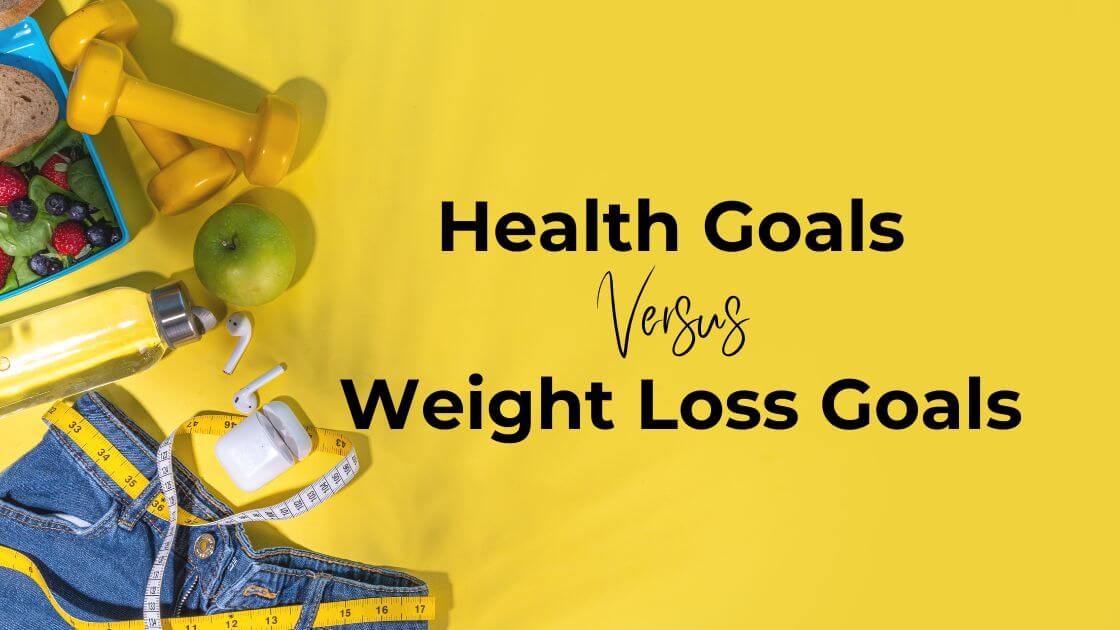
As the end of the year approaches, many of us reflect on the past and set goals for the future. Unfortunately, in a society dominated by diet culture, this time of self-reflection often becomes a season of weight loss resolutions. Ads flood our screens with promises of quick fixes, “detoxes,” and ways to shed holiday pounds. But are weight loss goals the same as health goals? Spoiler: They’re not.
Let’s explore why this distinction matters and how to pursue sustainable health goals that empower you for life.
Health Goals Versus Weight Loss Goals: The Diet Culture Trap
In a world steeped in diet culture, weight loss is often presented as the ultimate solution to health concerns. Feeling tired? Lose weight. Joint pain? Drop pounds. High cholesterol? Slim down.
But weight loss as a universal remedy is misleading and harmful. The association between weight and health is far more complex than what mainstream messaging suggests. For decades, we’ve been conditioned to believe that thinness equals health, happiness, and worth. However, this belief isn’t rooted in science—it’s rooted in societal biases like sexism, racism, and fatphobia.
The Historical Roots of Weight Loss Obsession
Up until the early 20th century, weight loss was not linked to health by medical professionals. The cultural obsession with thinness began in the post-World War era, when societal beauty standards shifted. As Sabrina Strings, author of Fearing the Black Body, explains, fatphobia is tied to white supremacy and religious morality. Thinness became a marker of racial, moral, and national superiority, while fatness was stigmatized as undesirable and sinful.
Patriarchy also fueled this obsession. During times when women fought for more power—like the right to vote or equal pay—cultural narratives about beauty intensified. Thinness became a tool of oppression, keeping women preoccupied with their bodies instead of pursuing autonomy and influence.
As Naomi Wolf writes in The Beauty Myth:
“A cultural fixation on female thinness is not an obsession about female beauty but an obsession about female obedience.”
Rather listen to the audio version of this blog? We’ve got you…
Why Wanting to Lose Weight Feels Normal
If you’ve ever set a weight loss goal, you’re not alone. It’s natural to desire weight loss in a world that constantly reinforces this message. Diet culture surrounds us, from the media to healthcare, shaping our beliefs and behaviors.
When clients like Julie (a fictional example) come to me wanting to lose weight, I validate their feelings. Their desires are a logical response to a lifetime of societal conditioning. But when we dig deeper, the reasons for their weight loss goals often center on improving their health, comfort, or quality of life—goals that don’t actually require weight loss.
Health Goals versus Weight Loss Goals
Here’s the critical distinction:
- Weight loss goals focus on changing your body size.
- Health goals focus on improving how you feel and function.
These two are not the same. In fact, pursuing weight loss can undermine genuine health goals by promoting restrictive diets, disordered eating, and a negative relationship with your body.
The assumption that weight directly correlates with health is flawed. Research consistently shows that health behaviors—like eating nutritious foods, moving your body, and managing stress—have a far greater impact on health than weight alone.
For example, a 2016 study published in the International Journal of Obesity found that nearly 47% of people classified as overweight and 29% of those classified as obese were metabolically healthy. Meanwhile, 31% of those with a “normal” BMI were metabolically unhealthy. This highlights that weight is not a definitive indicator of health.
Redefining Health: A Holistic Approach
Health isn’t just physical. The World Health Organization defines health as:
“A state of complete physical, mental, and social well-being, not merely the absence of disease or infirmity.”
True health encompasses:
1. Physical well-being: Feeling energized and comfortable in your body.
2. Emotional well-being: Managing stress, emotions, and mental health.
3. Social well-being: Maintaining fulfilling relationships and a sense of community.
How to Pursue Health Without Diet Culture
1. Set Non-Weight-Related Goals
Focus on goals like improving sleep quality, increasing energy, or building strength. These are sustainable and have a direct impact on well-being.
2. Adopt a Weight-Neutral Approach
Embrace the idea that health is not determined by the number on a scale. A weight-neutral approach emphasizes behaviors over outcomes.
3. Prioritize Self-Care
Invest in habits that nourish your body and mind, like balanced meals, enjoyable movement, and mindfulness practices.
4. Reject All-or-Nothing Thinking
Health isn’t about perfection. Small, consistent changes matter more than extreme overhauls.
5. Educate Yourself About Diet Culture
Learn how diet culture manipulates societal norms and reinforces harmful ideals. Knowledge is power.
6. Find Joy in Movement
Exercise should feel good, not like a punishment. Experiment with activities that bring you joy, whether it’s dancing, yoga, or hiking.
7. Manage Stress and Rest
Chronic stress takes a toll on health. Incorporate relaxation techniques and prioritize sufficient sleep.
8. Surround Yourself with Support
Seek out communities that celebrate body diversity and reject diet culture. Curate your social media to reflect these values.
9. Develop Self-Compassion
Be kind to yourself as you unlearn harmful narratives. Accept that your journey will involve ups and downs.
10. Celebrate Non-Scale Victories
Track progress in ways that reflect your overall well-being, like improved stamina, better mood, or reduced stress levels.
Health Goals Versus Weight Loss Goals: The Empowering Choice
Silencing the noise of diet culture and choosing health goals over weight loss goals is an act of self-empowerment. It’s about shifting the focus from shrinking your body to living your fullest, healthiest life.
Remember, your worth is not determined by your weight. By prioritizing sustainable health goals, you can nurture a positive relationship with your body and create a life that supports your well-being in every sense.
Your body, your choice. Choose health, not weight loss.
Need help pursuing your health goals?
You can access all of our services on our work with us page. We have a number of programs and service levels enabling us to serve most women:
Free Resources and Masterclasses: Get started and get to know us better!
Private coaching with Stephanie and her team Stephanie and her team of Certified Non-Diet Coaches are waiting to support you in a one-to-one setting with an individualized plan.
It’s Beyond The Food – Undiet Your Life group coaching program is for women to learn how to eat intuitively, become body neutral, and learn self-coaching at their own pace while being supported in a group setting by Stephanie and her team of Certified Non-Diet Coaches.
Non-Diet Coaching Certification for professionals ready to integrate the Going Beyond The Food Method™️ in their practice and for women wanting to become Certified Coach and build a business coaching other women beyond the food.
10 Tips for Silencing the Weight Loss Message During the Holidays

The holidays should be a time of joy, connection, and celebration, but for many, it’s also when the weight loss industry ramps up its messaging. From detox ads to fitness challenges disguised as New Year’s resolutions, these messages can overshadow the true spirit of the season, leaving you feeling unworthy or pressured to conform.
But you don’t have to listen. Silencing the weight loss message is about reclaiming your holiday experience and prioritizing your mental and emotional well-being over the noise of diet culture.
Here are 10 empowering tips to help you navigate the holidays while tuning out harmful weight loss messages.
1. Anticipate and Prepare for Weight Loss Messaging
Weight loss ads and campaigns flood the holiday season. From social media posts to commercials, these messages are everywhere, aiming to profit from your insecurities.
Tip: Anticipate this surge and decide how to respond. Mute accounts, skip triggering conversations, or prepare mantras like, “This message doesn’t define me.”
2. Understand the Systemic Fear of Fatness
The weight loss industry thrives on the fear of fatness, a belief ingrained in us by societal norms. Recognizing this fear as a learned bias is the first step toward dismantling its power.
Tip: Reflect on how societal pressures have shaped your views about weight and body image. Acknowledge that these fears are not your fault.
3. Follow the Money Trail
The weight loss, beauty, and wellness industries profit billions annually by pushing these messages. Remember, they aren’t invested in your health or happiness—they’re invested in their bottom line.
Tip: When you see a weight loss ad, remind yourself it’s designed to sell, not serve. This awareness can help you detach from its emotional impact.
4. Acknowledge Fatphobia as a Systemic Issue
Fatphobia isn’t just a personal issue—it’s systemic. It’s woven into media, healthcare, and social norms, perpetuating the belief that thinner is better.
Tip: Educate yourself on systemic fatphobia. Understanding its roots can empower you to resist its influence in your own life.
5. Learn the Language of Diet Culture
Silencing the weight loss message requires understanding the broader system of diet culture. This culture places value on thinness, equating it with health and morality, and keeps people preoccupied with their bodies.
Tip: Dive into resources that define and challenge diet culture. Learning its patterns can help you recognize and reject its influence.
Rather listen to the audio version of this blog? We’ve got you…
6. Be Compassionate with Yourself
It’s natural to feel the urge to lose weight in a world obsessed with thinness. However, acting on these feelings isn’t necessary.
Tip: Practice self-compassion. Acknowledge these feelings without judgment and remind yourself that your worth is not tied to your weight.
7. Curate Your Social Media Feed
The messages you surround yourself with matter. Social media can be a source of empowerment or a breeding ground for comparison and insecurity.
Tip: Unfollow accounts that promote weight loss or unrealistic beauty standards. Instead, follow creators who celebrate body diversity and self-acceptance.
8. Remember: You Don’t Owe Anyone an Explanation
Your body and choices are yours alone. You’re not obligated to explain your appearance, eating habits, or health goals to anyone.
Tip: Use affirmations like, “My body, my rules,” to reinforce your autonomy. Let go of the need to please others with your personal decisions.
9. Set Intentions from a Place of Love
When setting goals or intentions for the New Year, let them come from a place of love and self-respect, not fear or self-criticism.
Tip: Ask yourself, “What would I pursue if I believed I was already enough?” Use this as your guiding principle for decision-making.
10. Use Triggers as Opportunities for Growth
Avoiding weight loss messaging entirely isn’t realistic, but you can use these moments as chances to reflect and heal.
Tip: When triggered, pause and ask yourself, “What belief is being challenged here?” Use the experience to identify areas where you can grow and strengthen your mindset.
Silencing the Weight Loss Message: The Path to True Freedom
Silencing the weight loss message during the holidays isn’t just about avoiding negativity—it’s about embracing joy, connection, and self-worth. By following these tips, you can create a season that prioritizes your well-being over societal pressures.
Remember, the holidays are a time to celebrate the fullness of life, not shrink yourself to fit someone else’s ideals. This year, tune out the noise, choose self-love, and reclaim the holiday season for what it truly is: a time to cherish yourself and your loved ones.
Need help silencing the weight loss message to break free from diet culture?
You can access all of our services on our work with us page. We have a number of programs and service levels enabling us to serve most women:
Free Resources and Masterclasses: Get started and get to know us better!
Private coaching with Stephanie and her team Stephanie and her team of Certified Non-Diet Coaches are waiting to support you in a one-to-one setting with an individualized plan.
It’s Beyond The Food – Undiet Your Life group coaching program is for women to learn how to eat intuitively, become body neutral, and learn self-coaching at their own pace while being supported in a group setting by Stephanie and her team of Certified Non-Diet Coaches.
Non-Diet Coaching Certification for professionals ready to integrate the Going Beyond The Food Method™️ in their practice and for women wanting to become Certified Coach and build a business coaching other women beyond the food.
Navigating Diet Talks and Comments about Weight & Body

A Guide for Women
In a world preoccupied with appearance and weight, navigating diet culture and unsolicited body commentary can be challenging. Many women face these conversations in social, family, and professional settings, making it essential to develop strategies to maintain self-confidence and emotional well-being. This guide offers insights into understanding diet culture, managing emotional triggers, and setting boundaries to foster empowerment.
Understanding the Context of Diet Talks and Body Comments
The Pervasiveness of Diet Culture
Diet culture is a societal framework that equates thinness with health, morality, and success. This narrative often influences conversations about weight, food, and bodies, leaving many unaware of its insidious effects. Women, particularly, are often targeted, expected to conform to unrealistic body standards shaped by patriarchal norms.
Recognizing the systemic nature of diet culture can help shift perspectives. The comments you hear or the comparisons you make are products of a deeply ingrained belief system, not personal truths.
Rather listen to the audio version of this blog? We’ve got you…
Preparing for Diet and Body Discussions
Anticipate the Conversations
Diet-related discussions tend to surface during holidays, family gatherings, and even casual meet-ups. Rather than being caught off guard, anticipate these topics and prepare mentally. Understand that people may not have the same awareness of diet culture as you do, and many speak from a place of conformity rather than intent to harm.
Mindset Shift: View these interactions as predictable events rather than personal attacks. This reframing can lessen their emotional impact.
Managing Emotional Reactions to Body Comments
Recognizing the Source of Your Emotions
Emotional responses to body-related comments often stem from internalized beliefs rather than the words themselves. For instance, a remark about weight gain might trigger self-doubt because it aligns with existing insecurities. However, these emotions are self-generated by how we interpret others’ words.
Actionable Step: Pause when faced with triggering comments. Ask yourself, “What belief am I holding onto that makes this comment hurtful?” This reflection redirects focus to your own empowerment.
Cultivating Compassion for Yourself and Others
For Yourself
Acknowledge that reacting emotionally to body commentary is a conditioned response shaped by years of exposure to diet culture. Practice self-compassion by reminding yourself that these feelings are normal but can be reprogrammed over time.
intentional Thought: “I am more than my body. My worth is not defined by societal standards.”
For Others
Understand that those engaging in diet talk or commenting on bodies often operate from their own insecurities and limited understanding. Extend compassion, knowing they might not yet realize the harm of their words.
Establishing and Maintaining Boundaries
Internal Boundaries
Internal boundaries involve controlling your reactions and emotions. When encountering diet talk, remind yourself that these opinions are not reflections of your value. Mentally disengage from conversations that don’t align with your beliefs.
External Boundaries
External boundaries require clear communication. Examples include:
- “I prefer not to discuss my body or weight.”
- “Let’s talk about something other than dieting or weight loss.”
- “I am focusing on a healthy relationship with food, and diet culture doesn’t align with that.”
If a conversation continues to infringe upon your comfort, physically remove yourself from the situation when possible.
Reprogramming Internal Beliefs for Long-Term Resilience
The Role of Self-Coaching
Self-coaching is a powerful tool to reshape the beliefs ingrained by diet culture. Start by identifying thoughts that no longer serve you. For example:
- Replace “I need to lose weight to be healthy” with “Health is about habits, not size.”
- Replace “She looks better than me” with “We all have unique bodies that serve us differently.”
Practicing these shifts regularly can rewire thought patterns, reducing the impact of external comments.
Practical Steps for Everyday Situations
- Create Intentional Thoughts: Before attending gatherings, prepare affirming thoughts. For instance:
- “Comments about my body reflect their beliefs, not my worth.”
- “My body is not a topic of public discussion.”
- Develop a Go-To Response: Having a polite yet firm reply ready can defuse awkward moments. For example:
- “Thank you for your concern, but I’m focusing on a holistic approach to my health.”
- Engage in Supportive Communities: Surround yourself with people who respect and celebrate bodies of all shapes and sizes. Online groups or in-person communities can offer encouragement and validation.
The Power of Compassionate Boundaries
Setting boundaries isn’t about controlling others; it’s about protecting your energy and emotional well-being. While some may find this assertiveness surprising, over time, it fosters healthier relationships where mutual respect is prioritized.
Remember: Setting boundaries is a form of self-respect and empowerment.
Final Thoughts: Taking Responsibility for Your Journey
Ultimately, the power to navigate diet talks and body comments lies within. You cannot change others, but you can control how you respond. By shifting your beliefs, preparing for interactions, and setting compassionate boundaries, you reclaim your narrative and define your worth independently of societal standards.
As you embark on this journey, be patient and kind to yourself. Transforming your mindset takes time, but the freedom it brings is invaluable. You are more than your body. Embrace the full, authentic version of yourself.
Ready to Explore this Further?
You can access all of our services on our work with us page. We have a number of programs and service levels enabling us to serve most women:
Free Resources and Masterclasses: Get started and get to know us better!
Private coaching with Stephanie and her team Stephanie and her team of Certified Non-Diet Coaches are waiting to support you in a one-to-one setting with an individualized plan.
It’s Beyond The Food – Undiet Your Life group coaching program is for women to learn how to eat intuitively, become body neutral, and learn self-coaching at their own pace while being supported in a group setting by Stephanie and her team of Certified Non-Diet Coaches.
Non-Diet Coaching Certification for professionals ready to integrate the Going Beyond The Food Method™️ in their practice and for women wanting to become Certified Coach and build a business coaching other women beyond the food.
BMI Health and the Anti-Diet Health Approach
BMI, Health and the Anti-Diet Health Approach: A New Perspective
Are you tired of the endless cycle of dieting and weight obsession? You’re not alone. As a society, we’ve been conditioned to believe that our health is directly tied to our weight and Body Mass Index (BMI). But what if I told you that this approach is not only unsustainable but potentially harmful?
The Tyranny of Diet Culture
Let’s start with some eye-opening statistics:
– By age 45, the average woman has tried 61 different diets.
– Women spend an equivalent of 31 years obsessing about changing their bodies.
– Only 4% of women in first-world countries consider themselves ‘beautiful.’
– 75% of women report attempting to control their weight through dieting.
– 95% of diets fail, with dieters regaining lost weight within 1-5 years.
Perhaps most alarmingly, almost half of American girls between 1st and 3rd grade want to be thinner. 50% of 9-10-year-old girls are already dieting.
These facts paint a clear picture: we’re not free. We’re oppressed by diet culture.
The Historical Context of BMI and Health
You might assume that the link between health and weight has always existed. But the truth is quite different.
The Origins of BMI
The BMI was invented in the early 1800s by a mathematician. Surprisingly, it had nothing to do with health. It was created to determine the “ideal” body for a white European elite male of that era.
Read more about the history of BMI here.
The Shift in Medical Advice
Up until the 1930s, weight loss was never part of physician advice or public health guidelines. The association between weight loss and health only emerged in the post-World War II era. This shift coincided with the rise of diet culture and the idealization of thin bodies.
It’s crucial to understand that health and weight loss became associated not because of scientific evidence, but because culture had created a desire for thinness and a disdain for larger bodies.
BMI: A Flawed Measure of Health
Despite its widespread use, the BMI is a poor indicator of overall health.
The UCLA Study
A 2016 study by researchers at UCLA examined 40,420 American adults, assessing their health through six accepted metrics:
1. Blood pressure
2. Triglycerides
3. Cholesterol
4. Glucose
5. Insulin resistance
6. C-reactive protein (inflammation marker)
The results were surprising:
– 47% of people classified as overweight by BMI were healthy.
– 29% of those qualified as obese were healthy.
– 31% of normal-weight people were unhealthy.
The researchers concluded: “Policymakers should consider the unintended consequences of relying solely on BMI, and researchers should seek to improve diagnostic tools related to weight and cardiometabolic health.”
BMI, Health and the Anti-Diet Health Approach: The Truth About Our Desire to Be Thin
Our societal obsession with thinness isn’t rooted in health outcomes. Instead, it’s deeply intertwined with sexism and racism.
As Sabrina Strings, Ph.D., author of “Fearing the Black Body,” explains, two critical historical developments contributed to the fetishization of thinness:
1. The transatlantic slave trade
2. The spread of Protestantism
In the United States, fatness became stigmatized as both “black” and “sinful.” Slenderness served as a marker of moral, racial, and national superiority.
Read more about Feminism and Diet Culture here
The Evolution of Beauty Standards and Female Oppression
Throughout history, changing beauty ideals have been used as a tool to keep women focused on their bodies and away from pursuing power.
– 1890s: The Gibson Girl ideal emerged as women began to demand more power.
– 1920s: The Flapper Girl coincided with women’s fight for political power and the right to vote.
– 1970s: Twiggy’s ultra-thin look appeared as women demanded equal work and equal pay.
As Naomi Wolf states in “The Beauty Myth”: “A cultural fixation on female thinness is not an obsession about female beauty but an obsession about female obedience… Dieting is the most potent political sedative in women’s history; a quietly mad population is a tractable one.“
The Solution: Health Beyond Dieting
As you become more educated about the non-diet approach to health, you must become comfortable with the fact that health isn’t measurable in one gold standard. It’s time to embrace a new approach to health—one that doesn’t revolve around weight loss or BMI.
The Weight-Neutral Approach to Health
A weight-neutral approach recognizes that health status can’t be determined solely by weight. It acknowledges that weight is influenced by complex factors, many of which are difficult or impossible to change.
This approach focuses on factors within your control:
– Thoughts
– Emotions
– Behaviors
By addressing these elements, you can improve your well-being and health, regardless of your weight.
The Four Bodies of Health
Humans are more than just physical bodies needing nutrition. We are composed of four interconnected bodies:
1. Emotional body: Needs emotional wellness
2. Mental body: Requires mental balance
3. Spiritual body: Craves connection and faith
4. Physical body: Needs proper nutrition and movement
True health is the sum of all four bodies’ well-being.
Embracing the Anti-Diet Health Approach
Transitioning to an anti-diet approach can be scary for both professionals and individuals. But it’s a crucial step towards true health and well-being.
If you’re ready to explore this approach further, I’d like to invite you to a training I delivered a few months ago, “How to coach weight-neutral health.” This is how we approach health within the Going Beyond the Food Method™️.
I have also written an in-depth article on various tactics to support your Health Beyond Dieting; you can read here.
Conclusion: BMI, Health and the Anti-Diet Health Approach
It’s time to move beyond BMI and weight-centric approaches to health. By embracing a weight-neutral, holistic view of well-being, we can break free from the cycle of dieting and truly thrive.
Remember, your worth is not determined by your weight or your BMI. You are so much more than a number on a scale. It’s time to reclaim your health, your happiness, and your power.
Are you ready to start your journey towards true health beyond dieting?
You can access all of our services on our work with us page. We have a number of programs and service levels enabling us to serve most women:
Free Resources and Masterclasses: Get started and get to know us better!
Private coaching with Stephanie and her team Stephanie and her team of Certified Non-Diet Coaches are waiting to support you in a one-to-one setting with an individualized plan.
It’s Beyond The Food – Undiet Your Life group coaching program is for women to learn how to eat intuitively, become body neutral, and learn self-coaching at their own pace while being supported in a group setting by Stephanie and her team of Certified Non-Diet Coaches.
Non-Diet Coaching Certification for professionals ready to integrate the Going Beyond The Food Method™️ in their practice and for women wanting to become Certified Coach and build a business coaching other women beyond the food.
Weight Stigma Is The Real Problem
In the world of health and nutrition, many professionals focus on diet plans, exercise regimens, and the number on the scale. However, as advocates of the non-diet approach, we understand that there’s a more insidious issue that deserves our attention: weight stigma. The real culprit behind disordered eating behaviors, restrictive eating, and diet cycling isn’t a lack of nutritional knowledge; it’s weight stigma. As health professionals, it’s crucial to understand that weight stigma, not weight itself, is often the root cause of many health issues we encounter in our practices. Let’s explore why weight stigma is the real problem and how we can address it through a non-diet lens.
What Is Weight Stigma?
Weight stigma, also known as weight bias, sizism, or fatphobia, refers to negative attitudes and beliefs about people because of their weight. It’s the labeling of individuals with stereotypes based on their body size. Unfortunately, there’s a common misconception that weight stigma (or fat-shaming) will motivate people to change their behaviors. However, research clearly shows this isn’t true.
Types of Weight Bias
Weight bias can manifest in two primary forms:
1. Explicit or conscious bias: When a person recognizes they have negative attitudes towards people living with obesity.
2. Implicit or unconscious bias: When a person is unaware of their attitudes but treats or talks about a person living with obesity differently than someone with a lower body weight.
The Scope of the Weight Stigma Problem
Weight stigma is more prevalent than you might think. Over 40% of U.S. adults, across various body sizes, report experiencing weight stigma at some point in their lives. Globally, the numbers are even higher. A 2018 World Obesity Federation poll found that 62% of UK residents believed overweight individuals are likely to face discrimination, surpassing other forms of bias.
Where Does Weight Stigma Occur?
Weight stigma is deeply embedded in our society, making it challenging to avoid. It’s prevalent in:
– Media
– Social situations
– Schools and colleges
– Workplaces
– Healthcare settings
A study involving over 2,400 American women found that weight stigma was experienced from various sources:
– 72% from family
– 64% from classmates
– 60% from friends
– 54% from colleagues
– 43% from employers
– 32% from teachers
– 23% from authority figures like police
The Impact of Weight Stigma on Health
Contrary to popular belief, stigmatizing attitudes hinder rather than promote better health outcomes. The effects of weight stigma are far-reaching and significant.
Mental Health Impacts
Research demonstrates that weight stigma negatively impacts mental well-being, leading to:
– Lower self-esteem
– Depression
– Anxiety
– Poor body image
– Higher likelihood of substance abuse
Physical Health Impacts
Weight stigma also affects physical health, correlating with:
– Elevated blood pressure
– Increased levels of C-reactive protein
– Higher cortisol levels
– Increased glycated hemoglobin (HbA1c)
– Higher oxidative stress
Importantly, one study found that individuals who experience weight stigma face a 60% higher risk of premature death, regardless of their BMI.
The Stress Connection
The Cyclic Obesity Weight-Based Stigma (COBWEBS) model suggests that weight stigma induces stress, which raises cortisol levels, increases eating, and ultimately leads to weight gain and obesity. This creates a vicious cycle that’s difficult to break.
Weight Stigma in Healthcare Settings
As health professionals, it’s crucial to recognize that weight stigma is prevalent even in healthcare settings. Research shows that negative attitudes and stereotypes toward those living in larger bodies have been observed among various professionals, including:
– Doctors
– Nurses
– Dietitians
– Psychologists
– Gynecologists
– Eating disorder specialists
– Bariatric care professionals
Breaking the Cycle: Solutions to Weight Stigma
As health professionals, we have a responsibility to end the cycle of discrimination. Here are some steps we can take:
1. Investigate your own weight bias: Take the Harvard Implicit Association Test to uncover your own biases.
2. Reflect on your attitudes and beliefs: Examine your own thoughts and behaviors regarding weight.
3. Enhance your understanding: Learn about the complex interplay of genetic, biological, social, and environmental factors that influence body weight.
4. Develop empathy: Gain insight into the experience of weight stigma from the perspective of patients.
5. Adopt people-first language: Refer to someone as a “person living with obesity” instead of an “obese person.”
6. Speak up: Challenge negative comments about weight or body size when you hear them.
7. Be mindful: Consider how you discuss weight at all times, not just with clients or patients.
The Power of the Non-Diet Approach
As women health practitioners, we have the power to impact thousands of other women. By embracing a non-diet approach, we can lead a grassroots movement to change the world for future generations of women.
If you’re new to the non-diet approach and need support as a professional, consider joining The Non-Diet Coaching Certification. This program helps you perfect your professional skills and build a profitable non-diet business.
Remember, stopping dieting is a revolutionary act. As health professionals, we have the power to change the narrative around weight and health. Let’s work together to create a world free from weight stigma, where all bodies are respected and valued.
Next Steps
You can access all of our services on our work with us page. We have a number of programs and service levels enabling us to serve most women:
Free Resources and Masterclasses: Get started and get to know us better!
Private coaching with Stephanie and her team Stephanie and her team of Certified Non-Diet Coaches are waiting to support you in a one-to-one setting with an individualized plan.
It’s Beyond The Food- Undiet Your Life group coaching program is for women to learn how to eat intuitively, become body neutral, and learn self-coaching at their own pace while being supported in a group setting by Stephanie and her team of Certified Non-Diet Coaches.
Non-Diet Coaching Certification for professionals ready to integrate the Going Beyond The Food Method™️ in their practice and for women wanting to become Certified Coach and build a business coaching other women beyond the food.
The Secret to Achieving a Health Goal for Women
The Secret to Achieving a Health Goal for Women
As women, we’re often bombarded with messages about self-improvement and the need to “fix” ourselves. This constant pressure can make setting and achieving health goals feel daunting, especially when we’ve been conditioned by diet culture. But what if I told you there’s a better way? A way that empowers you to set health goals without falling into the traps of diet culture and patriarchy? Let’s explore how we can revolutionize our approach to achieving goals as women.
The Diet Culture Dilemma in Goal Setting
Before we dive into the secret of achieving health goals, we need to address the elephant in the room: diet culture. Many of us have been led to believe that an anti-diet approach means abandoning all health goals. This couldn’t be further from the truth.
The real problem isn’t setting health goals; it’s how we think about them. Diet culture has infiltrated our self-concept, affecting how we approach not just food and body image, but also our careers, relationships, and yes, goal setting.
Breaking Free from the “Fix It” Mentality
Society often encourages women to exist in a perpetual state of self-improvement. We’re constantly told what’s wrong with us, with the promise that fixing these “flaws” will lead to happiness and self-confidence. This mindset teaches us to undervalue ourselves and hold ourselves back.
As a result, many women associate goals with reminders of their “not good enoughness.” We see goals as a way to fix our perceived deficiencies, avoid pain, and seek approval. Unsurprisingly, this approach feels terrible and often leads to goal avoidance.
Achieving a Goal for Women: The Liberated Goal-Setting Process
So, how can we set health goals that empower rather than diminish us? The answer lies in the Liberated Goal Setting Process. This approach combines a weight-neutral perspective on health with a fresh take on goal setting. Here are the key components:
1. Constraint: Focus on One Goal at a Time
In our fast-paced world, it’s tempting to pursue multiple goals simultaneously. However, this often leads to overwhelm and burnout. The Liberated Goal Setting Process emphasizes focusing on one goal at a time. This constraint allows you to channel your energy and attention more effectively, increasing your chances of success.
2. Clean: Embrace Imperfect Action
Many women avoid setting goals because they fear they won’t achieve them perfectly. The “clean” aspect of this process involves understanding that the point of a goal is never perfection. Instead, it’s about building the habit of taking consistent, imperfect action toward something you want to create.
3. Courting: Develop a Relationship with Your Goal
Goal-setting isn’t just about the end result; it’s about the journey. The “courting” phase involves developing a deep relationship with your goal. This means learning to trust yourself throughout the process, celebrating small wins, and using setbacks as learning opportunities.
Reframing Health Goals for Women
Now that we understand the Liberated Goal Setting Process let’s explore how to apply it specifically to health goals:
Creating Instead of Fixing
Instead of setting goals to fix perceived flaws, focus on creating something new. Ask yourself: “What do I want to create in my life?” This shift in perspective can transform goal-setting from a draining experience to an exciting opportunity for growth.
Using Goals to Expand Your Self-Concept
View your health goals as containers for acquiring new skills, habits, and ways of thinking. Each goal becomes an opportunity to expand your self-concept and challenge your limitations. As you work towards your goal, pay attention to how you’re growing and changing as a person.
Achieving a Goal for Women: Making Health Goals Safe for Women
Combining the Liberated Goal Setting Process with a weight-neutral approach to health makes setting health goals safe and empowering for women. Here’s how:
1. Choose goals that align with your values, not societal expectations.
2. Focus on behaviors and habits rather than outcomes like weight loss.
3. Celebrate non-scale victories and internal changes.
4. Practice self-compassion throughout the process.
The Power of Self-Belief in Achieving Goals
As women, we often underestimate the importance of believing in ourselves. How much time do you spend convincing yourself that you can be successful? Becoming a woman who decides what she believes in, without seeking permission from others, is a powerful step in achieving your goals.
Coaching Women to Believe in Themselves
If you’re a coach working with women, you have the opportunity to guide them in believing in themselves through their health goals. Help your clients:
1. Identify limiting beliefs that hold them back.
2. Reframe negative self-talk into empowering statements.
3. Visualize success and the person they’ll become through achieving their goals.
4. Develop resilience in the face of setbacks.
Reconciling Health Goals with the Anti-Diet Approach
For those who have embraced the anti-diet approach, it’s important to understand that setting health goals doesn’t contradict these principles. The key is in how you approach those goals:
1. Focus on adding healthy behaviors rather than restricting.
2. Set goals based on how you want to feel, not how you want to look.
3. Prioritize mental and emotional health alongside physical health.
4. Use goals as a tool for self-discovery and growth, not punishment.
Conclusion: Empowering Women Through Goal Setting
Achieving health goals as a woman doesn’t have to be a battle against yourself. By reframing how we think about goals, embracing the Liberated Goal Setting Process, and focusing on creation rather than fixing, we can transform goal-setting into an empowering and exciting journey.
Remember, the secret to achieving a health goal for women lies not in the goal itself, but in how we approach it. By believing in ourselves, embracing imperfection, and viewing goals as opportunities for growth, we can create lasting change that feels authentic and empowering.
Are you ready to revolutionize your approach to health goals? Start by choosing one area of your health you’d like to improve, and apply the principles we’ve discussed. You might be surprised at how different goal-setting can feel when you approach it from a place of self-love and curiosity rather than criticism and fear.
Let’s rewrite the narrative around women’s health goals, one empowered step at a time.
Need help learning how to achieve a health goal? Or Coach others with health?
You can access all of our services on our work with us page. We have a number of programs and service levels enabling us to serve most women:
Free Resources and Masterclasses: Play Bigger: A 4-part Masterclass series to help you learn the process of making Good Money in a way that feels damn good!
Good Money Business Mastermind A business mentorship and a collective of ambitious, driven and empowered anti-diet culture providers and coaches on a mission to dismantle diet culture and make GOOD money doing it!
The Ultimate Guide to Intuitive Eating and Diabetes
At first glance, integrating intuitive eating and diabetes management may seem counter-intuitive. And for many reasons, most approaches to managing diabetes are based on weight loss and carbohydrate life-long restriction.
But there’s a major problem with these two approaches: a massive failure rate and unsustainability long term. As of today, diabetes is a noncurable disease, requiring that requires a treatment plan that can be maintained for the rest of your life. Unfortunately, dieting has a failure rate in a 2-5 years period.
And that’s when a weight-neutral approach to diabetes comes in!
Diabetes and weight-neutral approach to health
Switching from judgment to curiosity with food
Free Audio Guide to intuitive eating and diabetes
Intuitive Eating free mini-course
Diabetes Specific free resources
Diabetes and weight-neutral approach to health

A weight-neutral approach to health is based on the idea that your health status or risk level can’t be determined solely by your weight.
Moreover, it acknowledges that your weight is determined by a complex set of genetic, metabolic, physiological, cultural, social, and behavioural determinants. Many of these factors are either difficult or impossible to change.
Instead of focusing on a weight-oriented outcome to the management of diabetes, weight-neutral programs teach you to take charge of the factors that can help diabetes within your control.
So taking charge of these factors among many others will help you improve your well-being and management of diabetes regardless of your weight.
Here are just a few of these factors:
1. Stress management
Stress is an important contributor to pathological conditions in humans. And hormonal changes that occur during acute and chronic stress situations can affect glucose homeostasis. In fact, a large body of evidence supports an association between stress and hyperglycemia (diabetes).
2. Weight stigma
The experience of discrimination and stigma around one’s body has a direct influence on health behaviours and stress levels. And research is pointing at weight stigma as a major contributor to health outcomes including diabetes.
3. Movement
Consistent gentle & enjoyable body movement has proven time after time to reduce blood sugar dysregulation. Moreover, the recommendation from the American Diabetes Association is clear on the benefit of all forms of diabetes.
4. Body Dissatisfaction
Internalize weight stigma leads people to become increasingly dissatisfied with their bodies and make poor health decisions.
And a 2013 study published by the Journal of Obesity found no link between body weight and the way women feel about themselves. However, the findings show a link between how women feel about themselves and their health behaviours. In other words, the better they feel about their bodies, the more likely they are to take care of themselves leading to a better health outcome.
What is intuitive eating

When people ask what eating intuitively means, this is the definition that usually comes to mind: “a self-care eating framework that uses your body’s internal cues of hunger, fullness, and satisfaction to guide your eating behaviour.” It’s literally trusting your gut! Note that this intuitive eating definition emphasizes self-care and not weight loss.
Intuitive eating, an evidence-based approach to eating that allows you to be the expert of your own body. So this approach enables you to develop a healthy relationship with food and your body. And it teaches you to trust your ability to meet your own needs, distinguish between physical and emotional hunger, and ultimately develop body wisdom.
And eating intuitively is a well research process and proven health framework supported by more than 100 intuitive eating studies as of 2019.
Nutrition and Diabetes
There is no doubt that what we eat influences our blood sugar. And it’s a known fact that carbohydrates will increase our blood sugar level . However, not all carbohydrates have the same influence on the level of blood sugar.
Furthermore, studies are showing that individuals’ blood glucose levels respond very differently to different foods. So this is what we call bio-individuality. In other words, there’s no one “diabetic diet” for every person diagnosed with diabetes. And while there are definitely generalities with eating and lifestyle that can be helpful, there isn’t a one fit all approach.
An individual needs to explore what works for them and what doesn’t for them. So as life unfold the individual reaction to certain food will also vary and change with time.
This is how intuitive eating is the perfect approach to diabetes.
Switching from judgment to curiosity with food
Intuitive eating is part of a Health At Every Size™️ approach to diabetes and a global weight-neutral approach to health.
Intuitive eating will teach you to become curious about how certain food makes you feel. And to pay attention to how your blood sugar is post-meal, be attentive to how you feel after eating, and your overall level of energy.
Being an intuitive eater will allow you to engage with food objectively without judgment. So it puts you back into power when making your food choice. And it helps you build trust and respect for your body instead of fear and hatred.
Intuitive eating is really about switching to love instead of fear when it comes to food and diabetes.
Audio guide to Intuitive Eating and Diabetes
This audio guide (podcast) is a collaboration with two of my colleagues. Both are experts in the treatment of diabetes under the lens of Health At Every Size and Intuitive Eating.
Rebecca Scritchfield is a Washington DC-based Registered Dietitian Nutritionist and Certified Exercise Physiologist. And she has been practicing weight inclusive, HAES care since 2008. Also, Rebecca is the author of the book Body Kindness and the host of the Body Kindness podcast.
Glenys Oyston is a Los Angeles-based Registered Dietitian Nutritionist. And she has been practicing a HAES® philosophy since 2010 and has provided extensive diabetes education for the past five years. Also, Glenys is the co-host of the Dietitians Unplugged podcast.
What we cover in this free audio:
- Is weight loss the solution to treating diabetes ?
- 5 most frequent myths about diabetes debunk
- The Health At Every Size approach to treating diabetes
- Where to find resources to integrate a non-restrictive approach to preventing and treating diabetes.
Diabetes Specific Resource
Dr. Lindo Bacon has written a guide to help people navigate the journey of integrating the Health at Every size principle in their approach to diabetes management. You can access this free Health At Every Size guide here.
My colleagues Rebecca Scritchfield & Glenys Oyston both registered dietitians who know that self-care for diabetes doesn’t have to involve restriction and weight loss have created an education & support group. The Health at Every Size® (HAES®) Care for Diabetes education and support group can be accessed here.
Get started – Next steps
Are you are ready to learn more about how you can approach your health with a weight neutral lense?
You can access all of our services on our work with us page. We have a number of programs and service levels enabling us to serve most women:
Free Resources and Masterclasses: Get started and get to know us better!
Private coaching with Stephanie and her team Stephanie and her team of Certified Non-Diet Coaches are waiting to support you in a one-to-one setting with an individualized plan.
Undiet Your Life group coaching program is for women to learn how to eat intuitively, become body neutral, and learn self-coaching at their own pace while being supported in a group setting by Stephanie and her team of Certified Non-Diet Coaches.
Non-Diet Coaching Certification for professionals ready to integrate the Going Beyond The Food Method™️ in their practice and for women wanting to become Certified Coach and build a business coaching other women beyond the food.
Intuitive Eating to Lose Weight: Your Set Point First
“I’m done with dieting… I’ve had enough. I can’t go on one more diet!”
You’ve probably said that at one point. You start looking for an option. Then you find intuitive eating, and it sounds interesting! No more food restriction. You follow your hunger and fullness cues instead of counting calories. You want to try intuitive eating to lose weight… because food freedom sounds oh so appealing and exciting after years of dieting!
More and more women are turning to intuitive eating these days. It’s “cool” to be anti-diet, and even cooler to be an intuitive eater. Intuitive eating has been proposed as the next big “diet trend” in the next decade ahead…and that’s a big problem!
Typically, when we refer to “diet trend,” we refer to ways of eating to achieve weight loss. That’s what we expect, and for most of us, that’s what we seek. We think we need to lose weight. Notice that the keyword here is NEED. We want to lose weight and we don’t want to diet anymore so intuitive eating seems to be the perfect option.
It’s normal to want to lose weight

I want to validate those weight loss desires. Those desires to modify your body to fit the “thin ideal” are real and constantly encouraged in a society that is laden with weight stigma and fatphobia. It makes perfect sense that you have that desire and that you think you need to lose weight.
If you find yourself asking the question, “How can I practice intuitive eating and still lose weight?” then this post is for you. And so, I’m writing this blog post to help you understand what intuitive eating is about, how your body maintains a certain weight through your set point, why it’s useless to fight against this mechanism through dieting, and what you can do instead.
You will learn:
Will intuitive eating lead to weight loss?
Homeostasis and happiness set point theory
Identifying and manipulating your set point
How to get started with Intuitive Eating
What is Intuitive Eating?
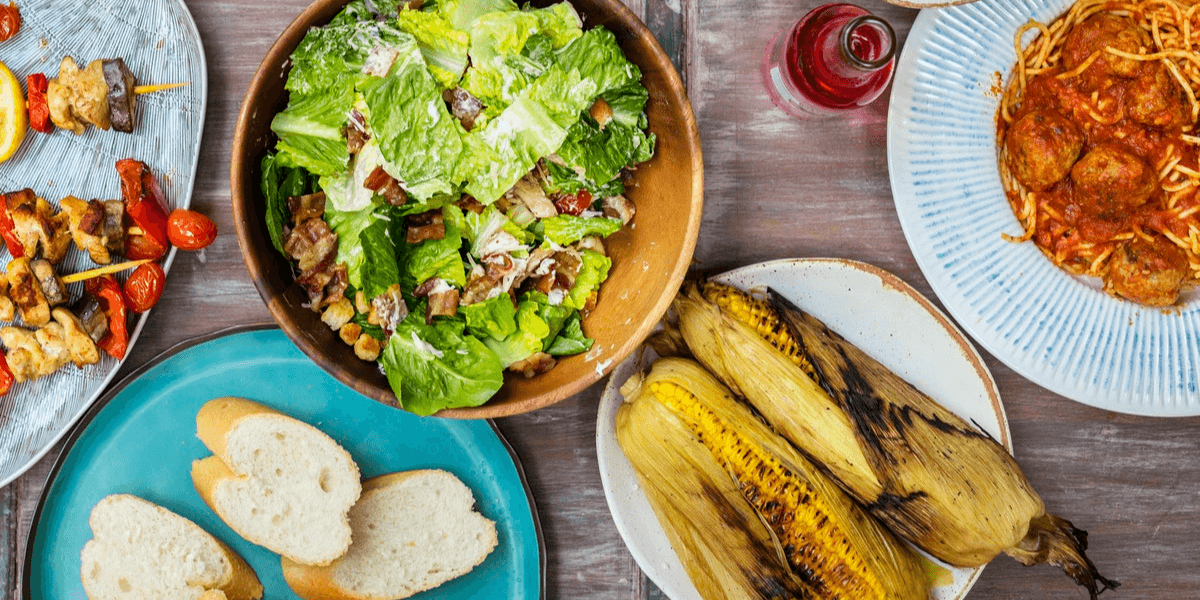
If people ask for an intuitive eating definition, this is what I usually give them: “a self-care eating framework that uses your body’s internal cues of hunger, fullness, and satisfaction to guide your eating behavior.” Notice that this definition emphasizes the body attunement element of intuitive eating, meaning that you need to listen to your body in order to eat intuitively.
This approach to eating allows you to develop a healthy relationship with food and your body. It teaches you to trust your ability to meet your own needs, distinguish between physical and emotional hunger, and ultimately develop body wisdom.
Should you try intuitive eating to lose weight?
If someone who claims to be a health professional tells you that you’ll lose weight with intuitive eating, run the other way! No health professional can rightly claim that Intuitive Eating leads to weight loss. I’ll explain why.
Rejecting the diet mentality is the first principle of intuitive eating. Focusing on weight loss will only hinder your progress as an intuitive eater.
Does that sound surprising? Well, it shouldn’t if you understand what eating intuitively means.
Intuitive Eating is based on interoceptive awareness or the ability to perceive physical sensations inside your body. This means, to be able to eat intuitively, you need to connect with your body and listen to your body’s “messages.”
In contrast, focusing on weight loss is based on external rules. It dulls your interoceptive sense and leads to body-doubt. It makes you think that something is wrong with you just because you’re not losing weight as you expected. Thus, you’re likely to think that intuitive eating “doesn’t work.”
While it’s true that some people lose weight when they eat intuitively, weight loss is more of a side effect rather than the focal point of intuitive eating. Some people who eat intuitively don’t lose weight, and that’s okay. Intuitive eating is weight neutral and is aligned with the Health At Every Size approach. (For more info on this approach, I recommend that you read the Health At Every Size book by Linda Bacon.
Time and again, research has proven that dieting for weight loss is not sustainable. Besides, it causes more harm than good to your body and mind. Dieting increases the risk of eating disorders, binge eating, weight cycling and weight stigma.
Intuitive eating to lose weight? Your set point first.
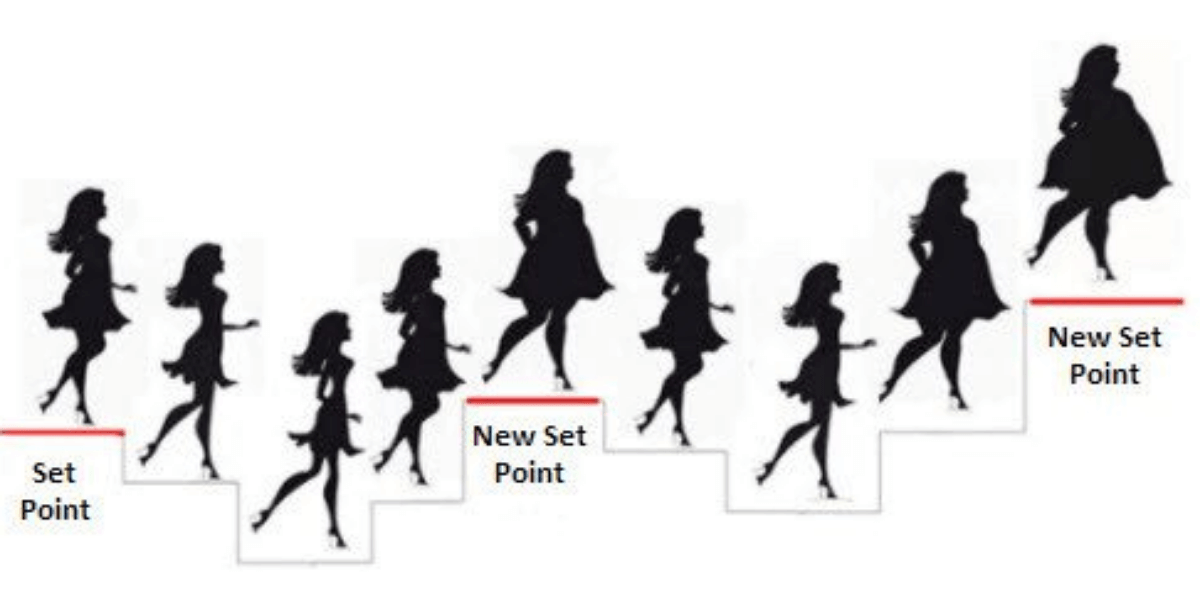
Think of your set point like a natural mechanism that your body uses to maintain a natural weight. This mechanism runs without your intervention. It’s just like how your lungs manage the appropriate amount of oxygen for your body or the way in which your heart manages your blood pressure.
Another fascinating analogy is how your brain automatically gets you steady on a bike even if it’s been 10 years since your last ride. It just happens without you having to think about it. Set point manages your weight in the same way.
In her book Health Every Size, Dr. Lindo Bacon describes our set point as the fat thermostat in our bodies. Your set point acts just like a heat thermostat in a room. When set to a certain temperature, the thermostat will send a message to the heating system to activate when below a determined temperature.
Your hypothalamus is the region of the brain that controls the system in your body that regulates your set point. It sends messages of hunger and fullness to manage your weight. Set point will make you think of the cookies in the cupboard and will also make you say no to the pizza when you’re full.
Our set point manages all the various components in the complex human body that create our body weight. Your set point is your ideal body weight, the body weight you manage naturally without food restriction, deprivation, and over-exercising. It is your weight between diets, the weight at which you can live a non-food or exercise-obsessed life.
The set point is the body’s internal system to maintain healthy weight. One 1970s research study showed that the average weight of a 60-year-old man was only four to five pounds more than the average 30-year-old man. That kind of weight maintenance is no accident and not the consequence of dieting either.
Set Point example
Dr. Bacon has this very powerful example in her book, Health at Every Size:
“Just consider a 50-year-old woman who weighs about five pounds more than she did when she was 20. If she eats about 2,000 calories a day over the course of 30 years, she takes in about 22 million calories. Since five pounds of body fat stores about 17,500 calories, that means that her body was just 0.08% off in balancing energy in versus energy out. This amounts to a difference of about 50 calories per month—less than the calories in one egg!” – Bacon, Linda. Health at Every Size: The Surprising Truth About Your Weight (p. 12).
Our set point can fluctuate during our lifetime. Currently, research estimates the fluctuation to be between 10 to 20 lbs. Set point fluctuates so it can maintain homeostasis.
If you are ready to explore Health At Every Size, you can download Dr. Bacon’s manifesto here.
Homeostasis and happiness set point theory
Homeostasis is the ability of the human body to maintain a stable environment. It’s key to our survival. The body’s magical ability to adapt to its environment at any given condition is what allows us to survive.
This ability to maintain balance is what maintains a stable body temperature, stable blood pressure, stable level of iron, blood glucose…and yes, body weight. All of these biological systems focus on maintaining homeostasis, a.k.a. balance, so we can survive and thrive in our environment.
It even goes beyond the physical body. Homeostasis is also what creates your thoughts and emotions. Your mind responds to its emotional environment as well.
The happiness set point theory is almost similar as the body weight set point theory. It suggests that our level of subjective well-being is determined primarily by heredity and by personality traits ingrained in us early in life. As a result, it remains relatively constant throughout our lives. Our level of happiness may change temporarily in response to life events. However, it almost always returns to its baseline level.
For humans, homeostasis means survival. Our bodies will do anything to bring us back to homeostasis so we can survive, including the dreaded weight gain.

Identifying and manipulating your set point
Are you at your set point right now?
That’s a very good question which unfortunately is not that easy to answer. How much fat protection your body requires (your set point) is the result of a complex interplay of genetics and the lifestyle choices you made today as well as in the past.
You see, at this time, we do not have a tool that will allow us to determine an individual set point. We also don’t have the knowledge on how to manipulate someone’s set point either. As of today, the complexity of the human body and the number of elements involved in managing one’s set point exceed our scientific capacity.
So to be clear, if you see a headline claiming to have the secret trick to lower your set point, like the 21-day set point reset detox, which I just saw recently, that’s 100% diet culture in action. It’s a lie! Don’t buy into it because it’s a scam. It’s just another gimmick from someone who wants to make money from your despair about your body weight.
What we do know is that if we want our body to settle at a natural weight that is effortless and healthy, we must make our brain feel safe. When the brain feels safe, it will send messages to the body that it’s safe. Will you lose weight? We do not know. No one actually knows. But what we know is that health arises or is maintained in a safe physical and psychological environment.
Why dieting is not the answer
When you go on a diet or when you exercise, you create an unsafe condition for your body.
The human body perceives intentional weight loss as a threat. That’s the reason diets don’t work. Your body will adapt to the starvation/deprivation period while you’re dieting and trying to lose weight.
But as soon as you release the pressure of the unsafe condition (i.e. you stop dieting or over-exercising), your body will come right back to your set point. In many cases, it will ensure complete protection from any further threat of weight loss.
So, what can we do? Based on all the current research that I’ve read, I’d like to suggest focusing on creating a relationship of trust and respect with the innate wisdom of your body. Create a safe environment, both psychologically and physically, in which you and your body can thrive in, not just survive.
The best place to get started is to educate and understand what could be perceived by your body as unsafe especially when it comes to food and body weight.
I would encourage you to get started by listening to episode 214 of the Going Beyond The Food podcast right up to the part where I recommend a tool to help you determine what could be impacting your set point.
Here’s a free checklist and resource to help you understand the set point theory and get started on your journey into a more trusting and respectful relationship with your body.
How to get started with Intuitive Eating
In all the years that I’ve been helping women as a clinical nutritionist, I’ve found that intuitive eating is the best starting point for developing a healthy relationship with food and one’s body. I’ve also made a part of my life. The women I’ve helped, as well as I, can attest that it’s positively life-changing!
I invite you to start your own intuitive eating journey and experience the same benefits that we’ve enjoyed from it. I have put together some resources that will help you get a good head start.
First, you can download my Get Started with Intuitive Eating Guide for free. It will teach you a 3-step process that will help you get started with intuitive eating right away.
Also, you can listen to the intuitive eating podcast episodes. Here, I share my best tips and interview experts who give their valuable insights on eating intuitively.
What is Diet Culture and 4 Steps to Navigate It
If you’ve been following me on social media or reading my blog, you certainly have come across the term “diet culture.” I’ve mentioned it many times before. But what is diet culture? How does it impact your life? And what should you do about it?
This article tackles this topic and teaches you how to opt-out of it. Also, I offer some resources that will help you start a new life outside of this oppressive belief system. Here’s what you’re going to learn from this blog post:
How to navigate the diet culture
Diet culture educational resources
Now, let’s begin exploring the diet culture so you can take your first steps to freedom!
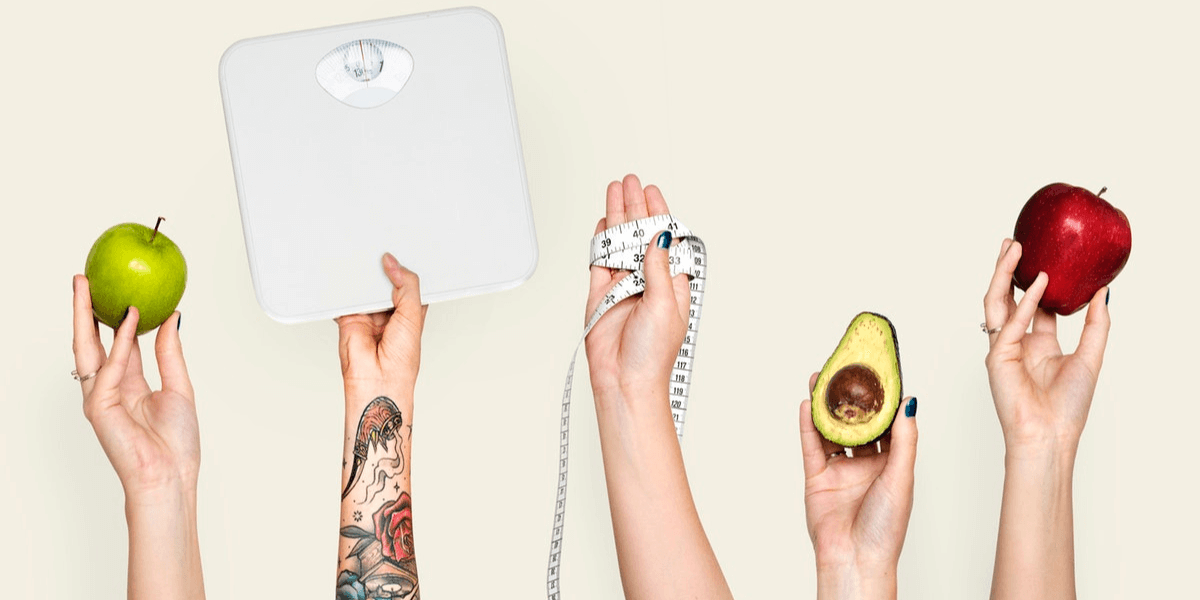
What is diet culture?
From the sound of it, you might think the term “diet culture” refers to a group of people who are on a diet. But it actually has a different meaning.
Christy Harrison, a colleague of mine, has the best diet culture definition. She defines it as a system of belief that worships thinness and equates it to health and moral virtue. It’s now prevalent in our society and oppresses women from all over the world!
How does this impact your life?
This means you may have spent your entire life thinking that you’re broken just because you don’t look like the impossibly thin ideal.
That’s just one angle. You can also look at the diet culture from three other angles:
The second angle is that it promotes weight loss as a means of attaining higher status. It makes you feel compelled, almost obligated, to spend massive amounts of time, energy, and resources, trying to shrink your body so you can fit into this thin ideal. Now, research is very clear that the dieting model has a 95 percent failure rate, so it might as well be an exercise in futility.
The next angle is it demonizes certain ways of eating while elevating others. It forces you to be hyper-vigilant about your eating, shames you for making certain food choices, and distracts you from the pleasure of eating as well as from your purpose and power.
Last but not least, it oppresses people who don’t match the supposed picture of health or the thin ideal. This affects us most particularly as women, although it’s starting to affect men.
My 25-year journey inside diet culture
As you probably know, I used to have a love-hate relationship with food and my body. A 25-year career in dieting left me obsessed, frustrated and confused about food. I was also at a loss on how to take care of my body.
Dieting was stealing my life and at 39. Then I decided that I had enough… I finally chose to take my power back and free myself from dieting and body shaming. The Going Beyond The Food Method™️ was born out of my personal journey.
Now, as a health professional, I’ve helped hundreds of women work their way out of this oppressive culture and develop a healthier relationship with food using intuitive eating and body neutrality.
Is diet culture affecting you, too? I invite you to consider its impact on your life. Take our quick self-assessment tool we created to help women determine if intuitive eating is the right solution for them.
How to navigate the diet culture

I invite you, and honestly all women, to become diet culture dropouts! Below are the four steps you need to take in your journey towards freedom:
Understand that you have a choice.
Now is the best time to be a woman. Unlike the generations before us, we’re liberated and empowered! You have to understand that diet culture is a tool that the patriarchy uses to keep us from being in our power. It keeps us busy minding our calories and macros. It induces guilt and so we feel inclined to punish ourselves when we fail.
Whether you want to stay in the diet culture and be oppressed or to break away from it and change your life, it’s totally up to you. But you should know that you have the power to make that choice.
Take responsibility.
With great power comes great responsibility. Now, that sounds like a quote from a Spiderman movie, but as an empowered woman, you are responsible for your life. No one else is!
Now, you can be the victim of diet culture and drown yourself in self-pity and helplessness. Or you can say, “Screw this! I’m going to take responsibility, and I’m going to work myself out of it and change my life.”
It’s your call.
Educate yourself.
Read books and blogs. Listen to podcasts. Consume content that supports the choice that you’ve made for yourself. Be on guard against the content that might suck you right back into the diet culture. As I’ve said before, beware of diet culture programs disguised as wellness practices.
I’ve made it my personal mission to empower women by educating them so they don’t allow themselves to be oppressed. And so, I have put together some resources for you.
We have anti-diet culture podcast episodes on the Going Beyond the Food Show, where I interview health professionals. I invite you to listen as they share their expert insights and opinions on our relationship with our bodies and with food.
You can also read our anti-diet culture blog posts on this website. Here, we go deep into the research and the studies around diet culture as well as dieting and its impact on health.
If you’re looking for an anti-diet culture book, I recommend Health At Every Size by Linda Bacon, PhD. Dr. Bacon does research around health and dieting. It’s a book that gave me a lot of “aha moments” and subsequently changed my life.
Find a framework to help you reconstruct your relationship with food and with your body.
You’re going to shift from the way of life that diet culture has taught you to a more empowering way of thinking and doing things. This means there’s a lot for you to unlearn and relearn, so you’re going to need all the support you can get.
The Going Beyond The Food Method™️ is a 5-step strategic process to help women move out of diet mentality and into self-care. Our 5 pillars are: mindset, emotional wellness, mindfulness, body neutrality and intuitive eating.
Diet culture educational resources

As a clinical nutritionist, I’ve found that intuitive eating is the most effective tool for developing a healthy relationship with food and your body. Intuitive eating teaches you to tap into your innate hunger and fullness cues. It requires you to relearn how to engage with food without restriction and without labeling food as “good” or “bad.”
The trauma around body image is more powerful than the one around food. What I have found over the years is that when we work through our relationship with food, it’s a lot easier and faster to heal body image issues.
We offer a variety of programs that will help you should you decide to opt-out of diet culture:
You can access all of our services on our work with us page. We have a number of programs and service levels enabling us to serve most women:
Free Resources and Masterclasses: Get started and get to know us better!
Private coaching with Stephanie and her team Stephanie and her team of Certified Non-Diet Coaches are waiting to support you in a one-to-one setting with an individualized plan.
Undiet Your Life group coaching program is for women to learn how to eat intuitively, become body neutral, and learn self-coaching at their own pace while being supported in a group setting by Stephanie and her team of Certified Non-Diet Coaches.
Non-Diet Coaching Certification for professionals ready to integrate the Going Beyond The Food Method™️ in their practice and for women wanting to become Certified Coach and build a business coaching other women beyond the food.

Welcome!
I’m Stephanie Dodier
Non-Diet Nutritionist & Coach
I teach and coach women how to break free from the socialized thinking of diet culture and liberate yourself from unrelenting pressure to be thinner so that you can eat in a way that truly supports your well-being and start living the life you’ll look back on with no regrets.
Join me in leading the feminist health coaching revolution!
Ready? Let's do this!
FREE QUIZ & GUIDE
Let's see just how much diet culture has a grip on you
I curated 3 questionnaires to evaluate your body image, eating behaviours and mindset to see if you have been just how much your life has been impacted by diet culture.
Get ready to completely change the way you look at health?


